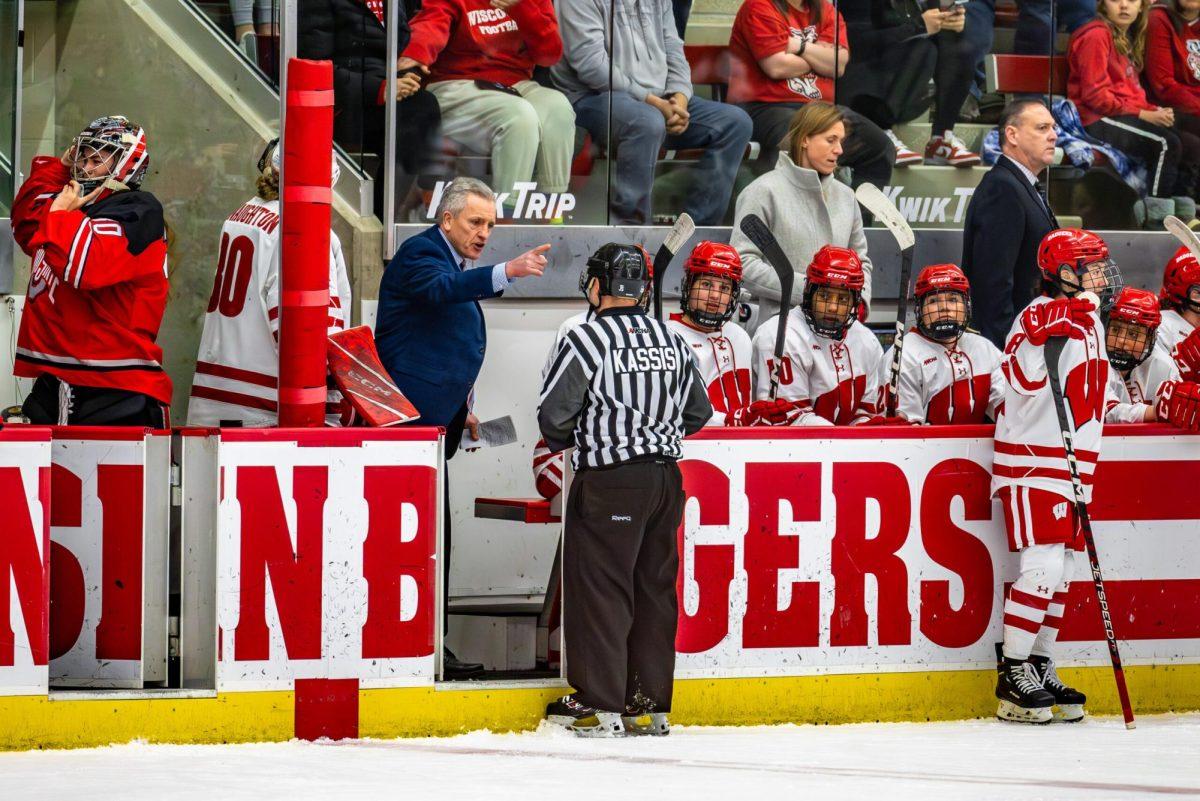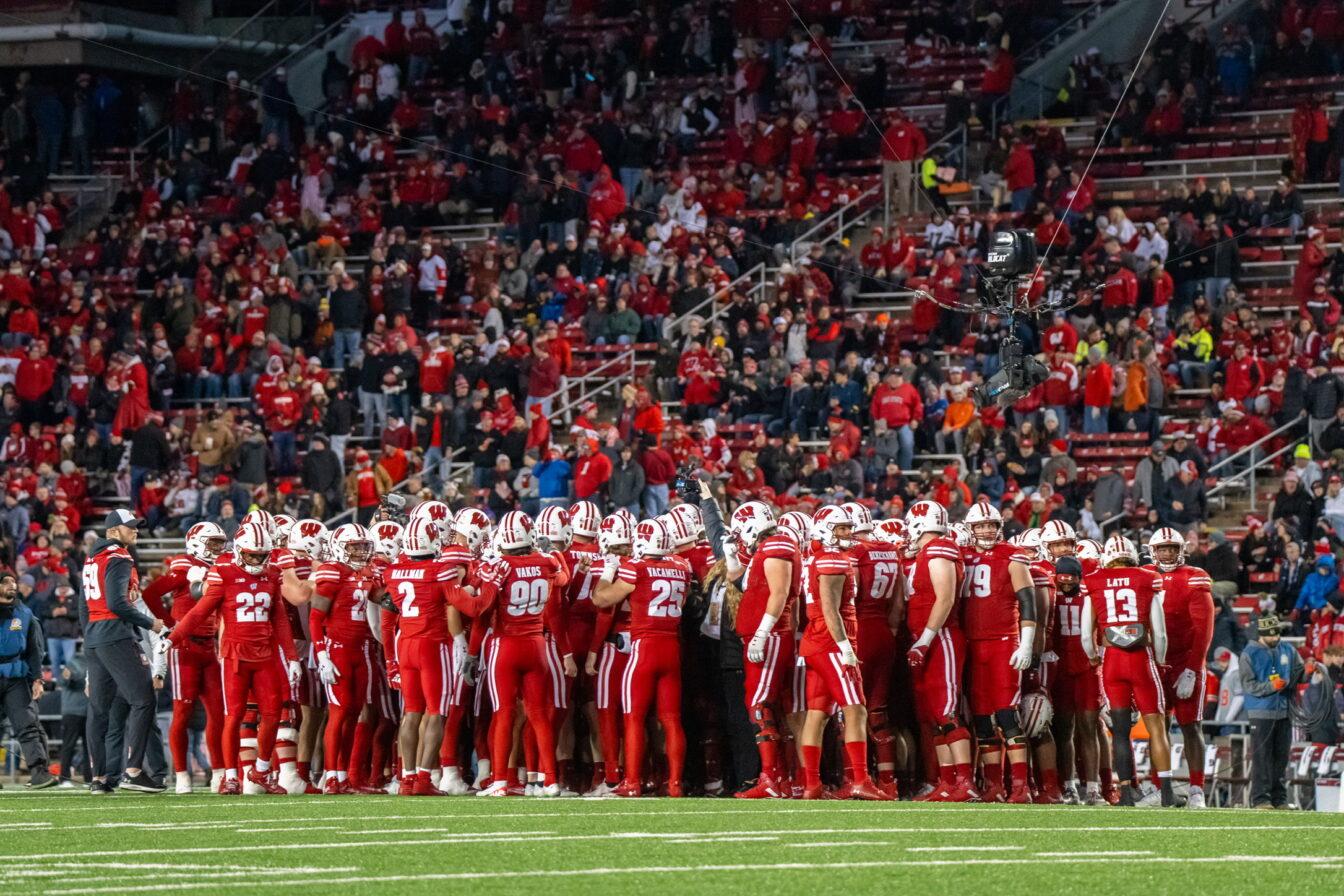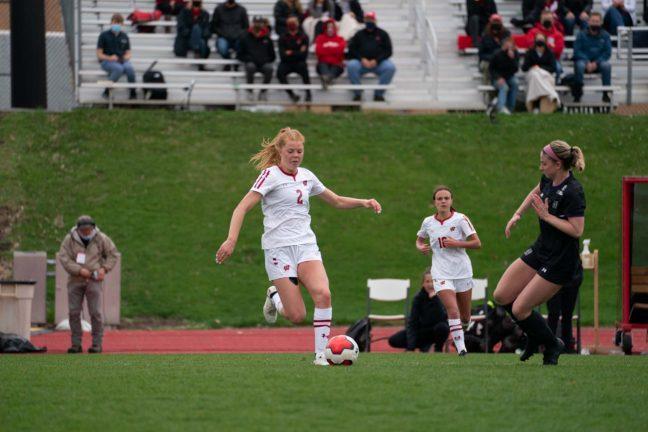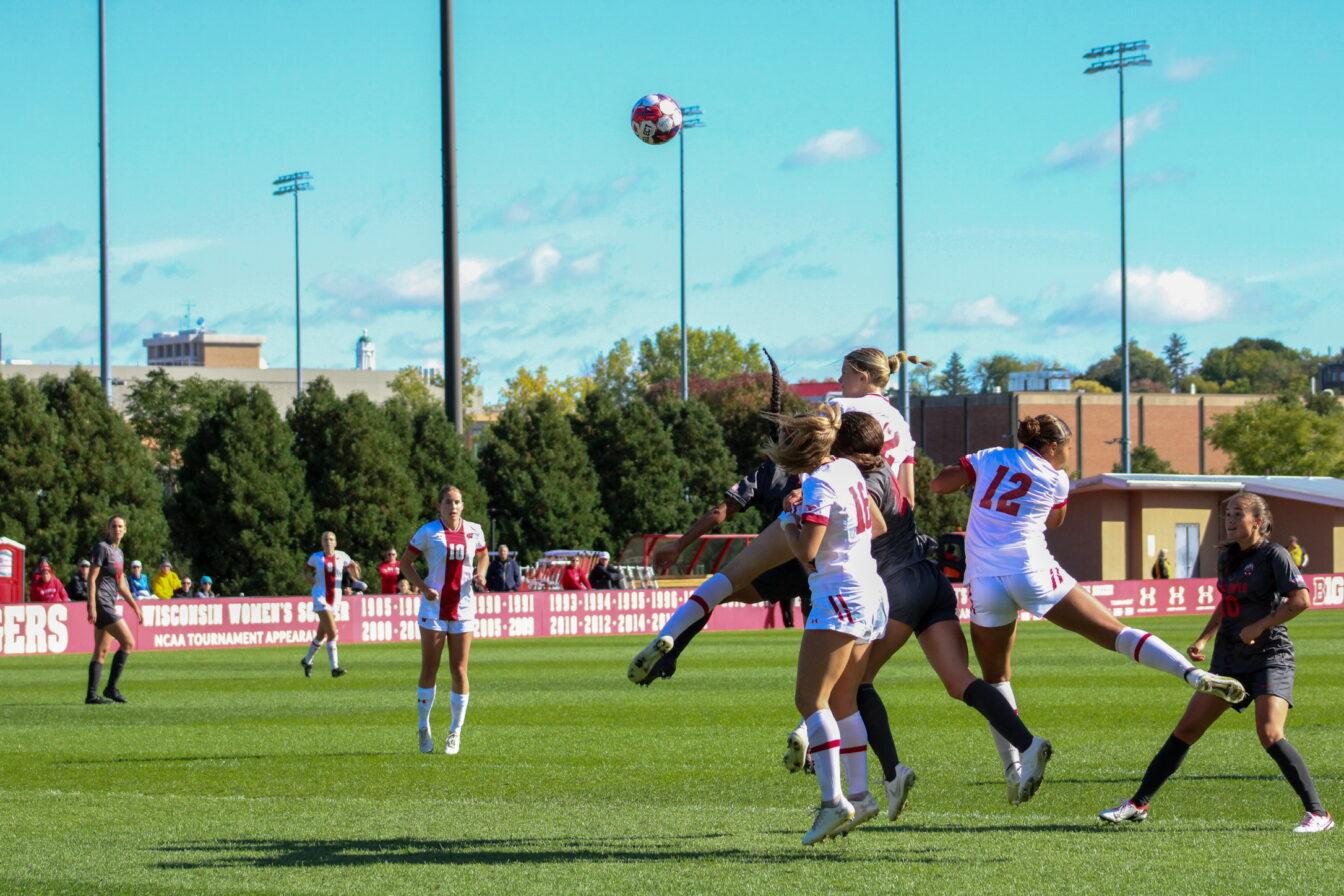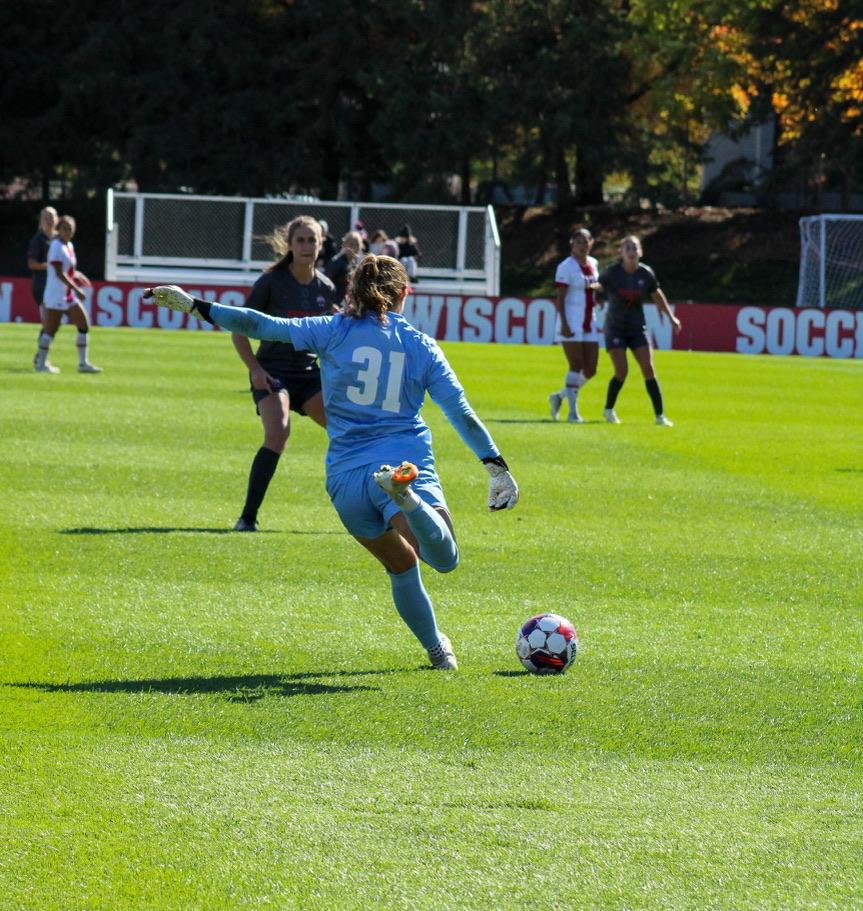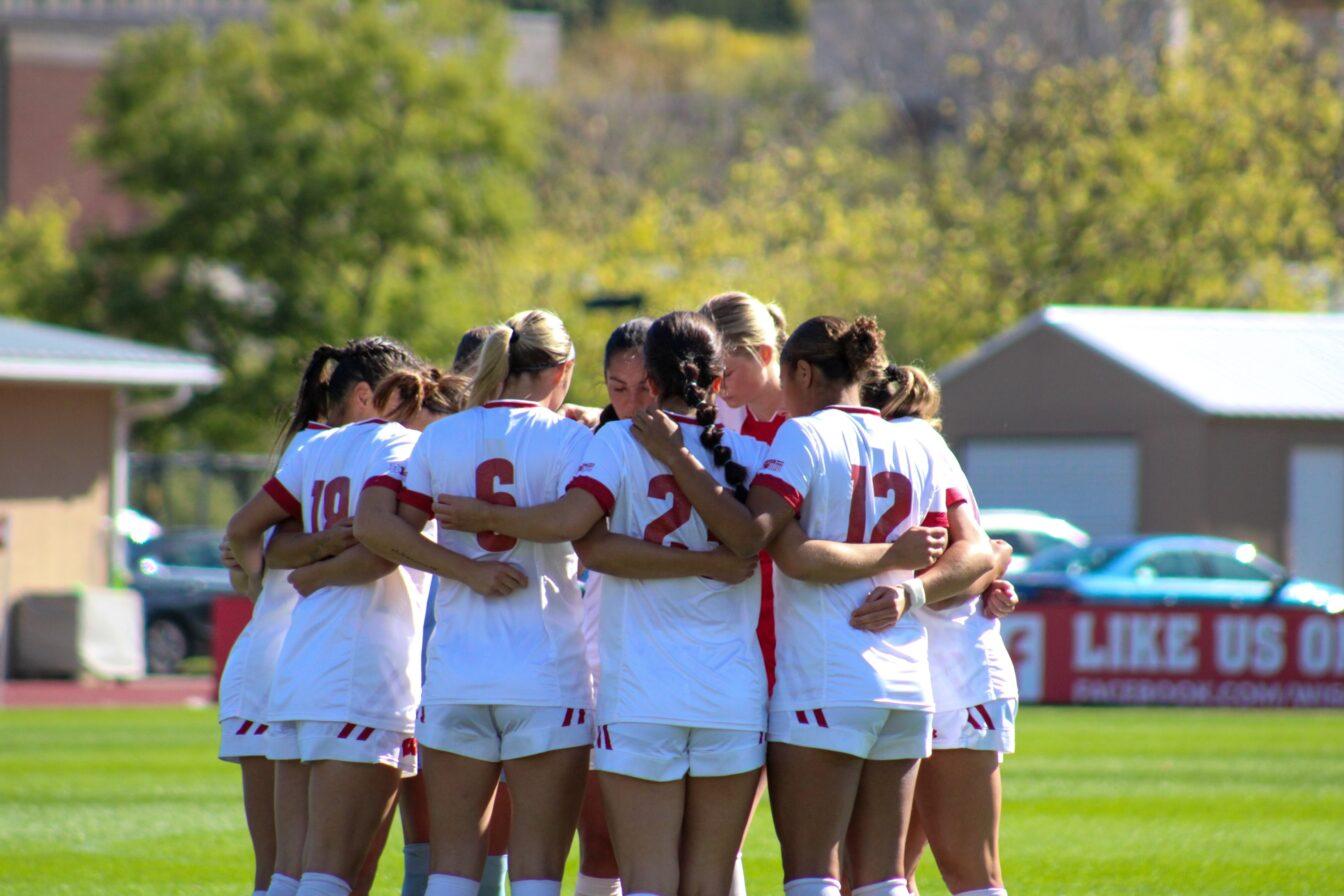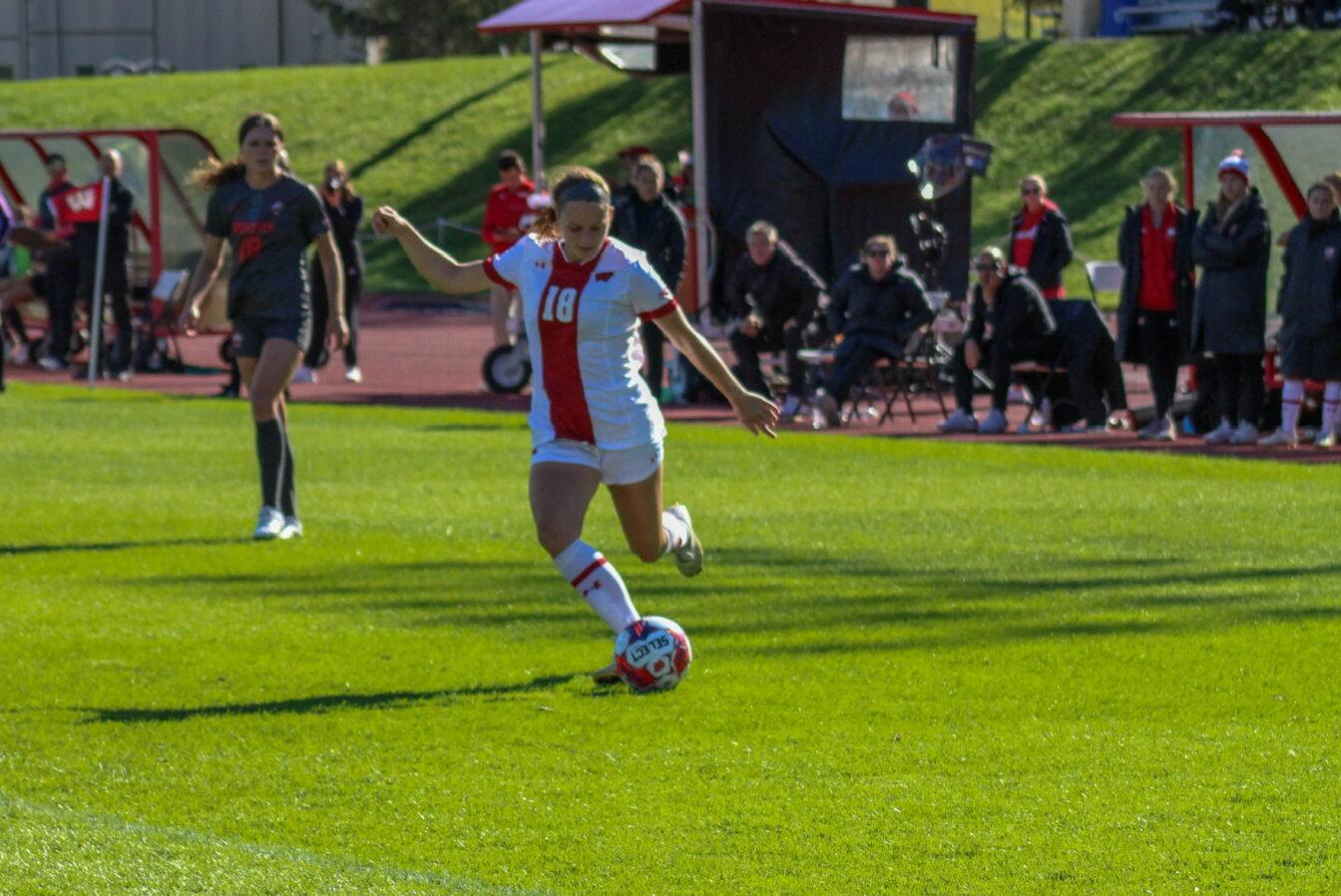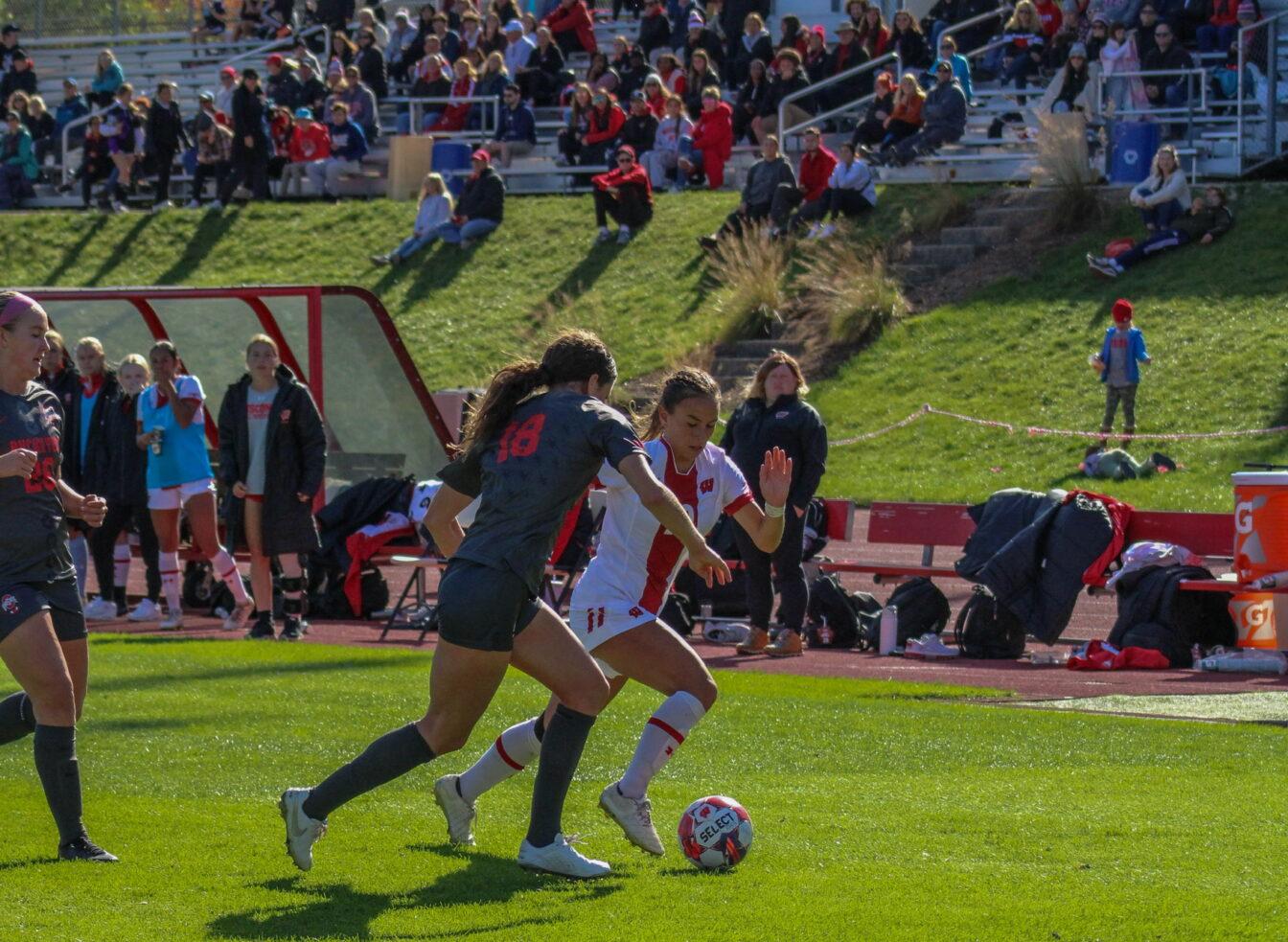
Alev and Derya Kelter, twin sisters from Eagle River, Alaska, have a lot in common. Not only do they both attend the University of Wisconsin, but they both are scholarship athletes for the Badgers. And that is not even the most unique thing about the duo.
Most people are not athletic enough to play a sport at the collegiate level. Those who are usually have to choose one sport at the school of their choice.
For Alev and Derya, the recruitment process went a little different. The twin sisters from Alaska had one stipulation for any school that was interested: They had to be able to play both soccer and hockey at the collegiate level.
“That was actually one of our No. 1 goals besides academics,” Derya said. “The fact that they would let us play both hockey and soccer. The coaches here both work together very well, so that helped too.”
A few schools gave them a look, but Wisconsin eventually stood out above the rest as both women’s soccer head coach Paula Wilkins and women’s hockey head coach Mark Johnson were looking to recruit the Kelter sisters to play for their respective programs.
“Mark and I actually went up to Eagle River, Alaska and met with both of them,” Wilkins said. “I originally saw them about two years ago at a tournament where their state team from Alaska was playing the Hawaiian state team. I just saw them there and I had heard about their interest in the hockey program, so I thought it would be a great fit.”
So the sister duo chose Wisconsin, due in large part to the prestige surrounding the hockey program and Wilkins’ track record as a head coach at Penn State. The signing of the Kelters was a big one for both programs, as both Alev and Derya excelled in hockey and soccer at the high school level.
In particular, Alev was team captain of the 2009 U.S. U18 hockey squad that won gold at the IIHF World Women’s U18 Championship. She also led all defensemen in scoring with five goals and three assists.
And while those accomplishments are impressive, she is not too bad at soccer either. Alev was named the Gatorade Player of the Year in 2008 for soccer as a senior after earning All-American honors and being named Alaska Player of the Year the previous season.
As a result of such success in both sports, Alev and Derya could not choose between the two sports — they wanted to play them both.
“They asked us if we could do without one or the other and we said ‘no,'” Alev said of the UW coaches. “When you make it to the national level in both, that’s kind of where you see how good you are. If I didn’t make it to the national level in hockey I’d say maybe I’m a better soccer player, but when those two are pretty equal it’s hard to choose.”
Derya echoed Alev’s sentiments.
“If I could tell you if I liked one sport or the other better, I’d be playing it already and not the other one,” she said. “I wouldn’t be spending half my talent on a sport that I didn’t like as much as the other.”
Yet, with the two-sport system, there come drawbacks. While hockey practice has begun for the 2009-10 season, the Kelters have not been practicing with the team.
According to Wilkins’ rules for the sisters, they can skate and work on hockey on their own, but are not allowed to practice with the team. Nor will they play in games when the season begins Oct. 2 at the Kohl Center.
“We’re mostly worried about injuries, but the other part is if they get fatigued or tired,” Wilkins said. “This is obviously our competitive season, and balancing academics and playing two sports would be nearly impossible.
“It’s also about NCAA hours. We want to make sure the student-athlete experience is right, and when they go play hockey after soccer season is over, they’ll do no soccer stuff.”
Although they are unable to participate with both teams, the Kelters are still at the majority of team events for the hockey team, including meals and practices.
As a result, they are able to double the size of their “family.”
“We’re still eating with the girls and doing timetable and watching them test,” Alev said. “So we know that once we get with the team we’ll fit right in. It’s not like we’re excluding ourselves, and in a sense it’s better because we have two families right now.”
When the two were younger, they played several other sports competitively, including softball, basketball, swimming and track. Eventually, however, they realized they needed to choose what they truly loved and wanted to continue to improve in.
Coincidentally, the two both chose soccer and hockey as the sports they truly loved. And their love for hockey was influenced by the move to Alaska after originally being born in Florida and moving around to several other states, including Colorado, Arkansas and Texas.
It turned out to be a fortunate decision, as the two sports seem to work well together
“They complement each other a lot,” Derya said. “Just like the agility stuff in soccer translates over to hockey and strength from hockey helps us stay balanced over the ball for the soccer games. And the knee stuff that you do in hockey, like always being down and ready, really helps us with ACL injury prevention in soccer.”
And it is not as if the two simply play the two sports casually. Their successes have brought a significantly large number of games for the duo recently, especially at the state and national level.
Wilkins sees their experience in so many games and their dual-sport ability as something that can definitely help her team.
“I think when you’re in those environments and you’re playing that many games, you learn to understand how to win,” Wilkins said. “I think learning how to win is an important aspect, no matter what sport you’re playing. We always say winning takes work, and I think they understand that.”
Like any twins, Alev and Derya have grown up spending a lot of time together. Now, more than ever, with the two playing on the same two squads in Madison, having each other around has been a benefit to both.
Not only does it keep the two from ever feeling alone so far from home, but it also provides an added motivating factor when the other twin is involved in the same sports every day.
“It’s nice; it never gets lonely,” Derya said. “It keeps me competitive to keep going and drive to be just as good as her when we’re constantly competing against each other. Of course, it’s always nice to have family around.”









